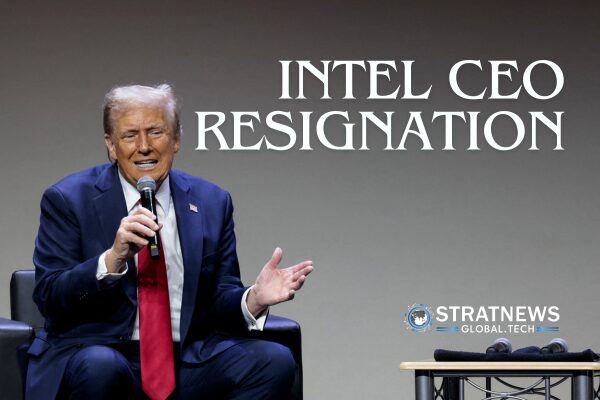Trump Meets Intel CEO After Resignation Demand
US President Donald Trump has met with Intel CEO Lip-Bu Tan, just days after calling for his resignation over alleged conflicts of interest. Despite the recent tensions, Trump praised Tan and described their meeting as “a very interesting one.”
Following the news, Intel shares rose 3% in extended trading.
Praise After Public Criticism
Last week, Trump demanded Tan’s immediate resignation, accusing him of being “highly conflicted” due to his investments in hundreds of Chinese companies, including some reportedly linked to China’s military. Reuters reported in April that such investments are not illegal unless the companies are on the US Treasury’s Chinese Military-Industrial Complex Companies List, which prohibits investment.
In a Truth Social post, Trump said the meeting also included Commerce Secretary Howard Lutnick and Treasury Secretary Scott Bessent. He noted that Tan and his cabinet members would present him with suggestions next week, calling Tan’s career rise “an amazing story.”
Intel’s Challenges and Tan’s Role
Tan became Intel’s CEO around six months ago, inheriting a company struggling to compete in the fast-growing AI chip market dominated by Nvidia. Intel has also faced financial strain from its heavy investment in contract manufacturing.
Since taking the helm, Tan has pursued major strategic shifts, including selling assets, laying off staff and reallocating resources. However, investors and former Intel insiders told Reuters that Trump’s demand for his resignation risks distracting him from the company’s turnaround efforts.
Intel said in a statement that Tan met with Trump for a candid and constructive discussion about the company’s commitment to strengthening US technology and manufacturing leadership. The firm pledged to work closely with the administration to “restore this great American company.”
Broader Pattern of Corporate Intervention and Trump
Trump’s push for Tan’s removal is a rare example of a US president publicly calling for a corporate leader’s ouster. It follows other high-profile interventions in the tech sector, including an agreement requiring Nvidia and AMD to share 15% of revenue from certain chip sales to China with the US government.
The meeting with Tan could signal a potential shift towards cooperation, though questions remain over Trump’s willingness to influence corporate decision-making directly.
with inputs from Reuters


